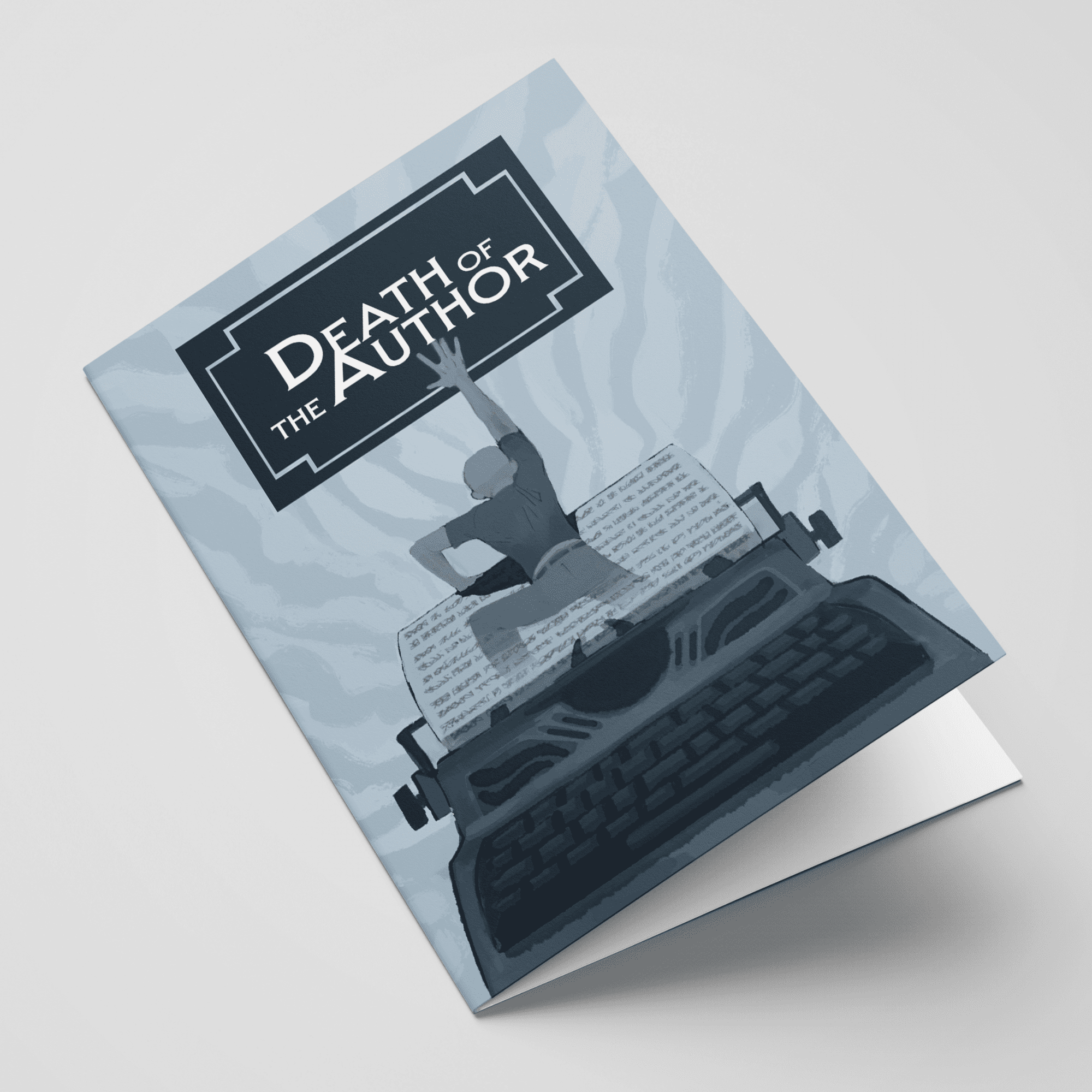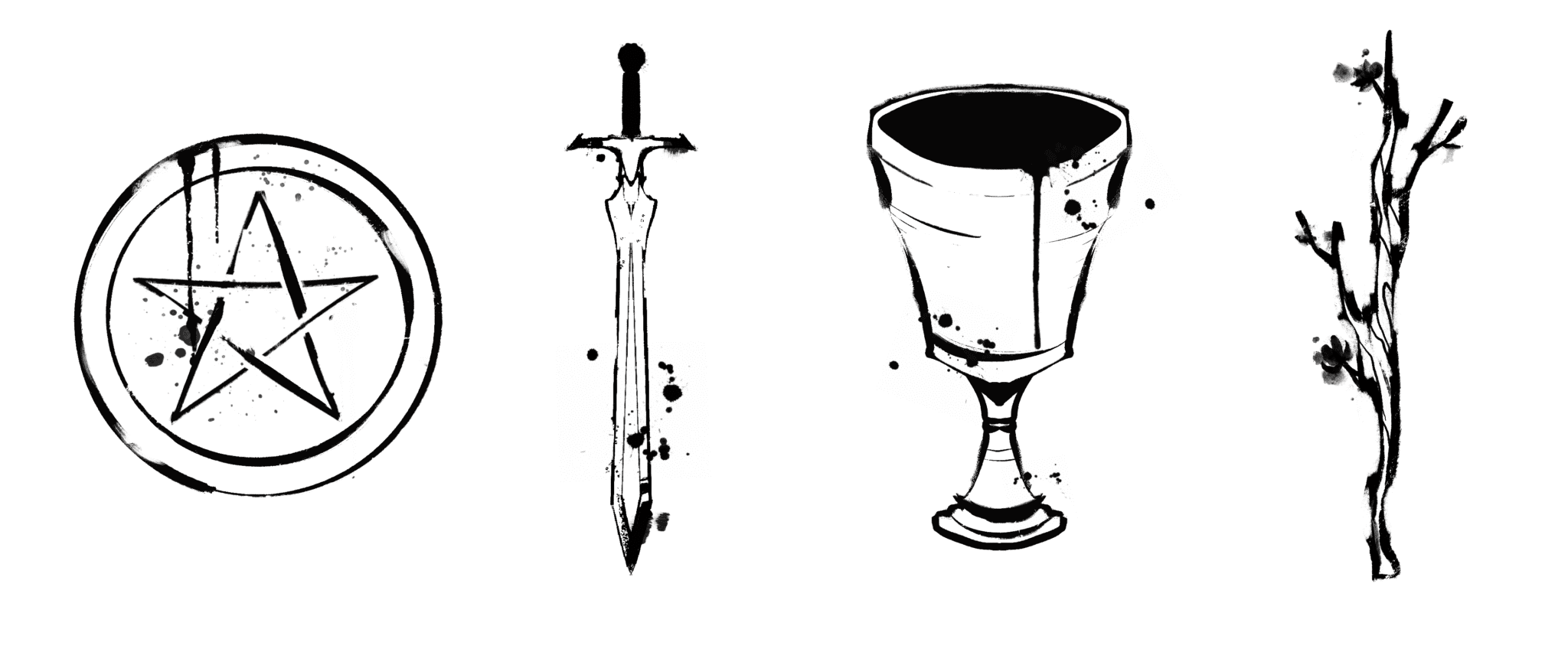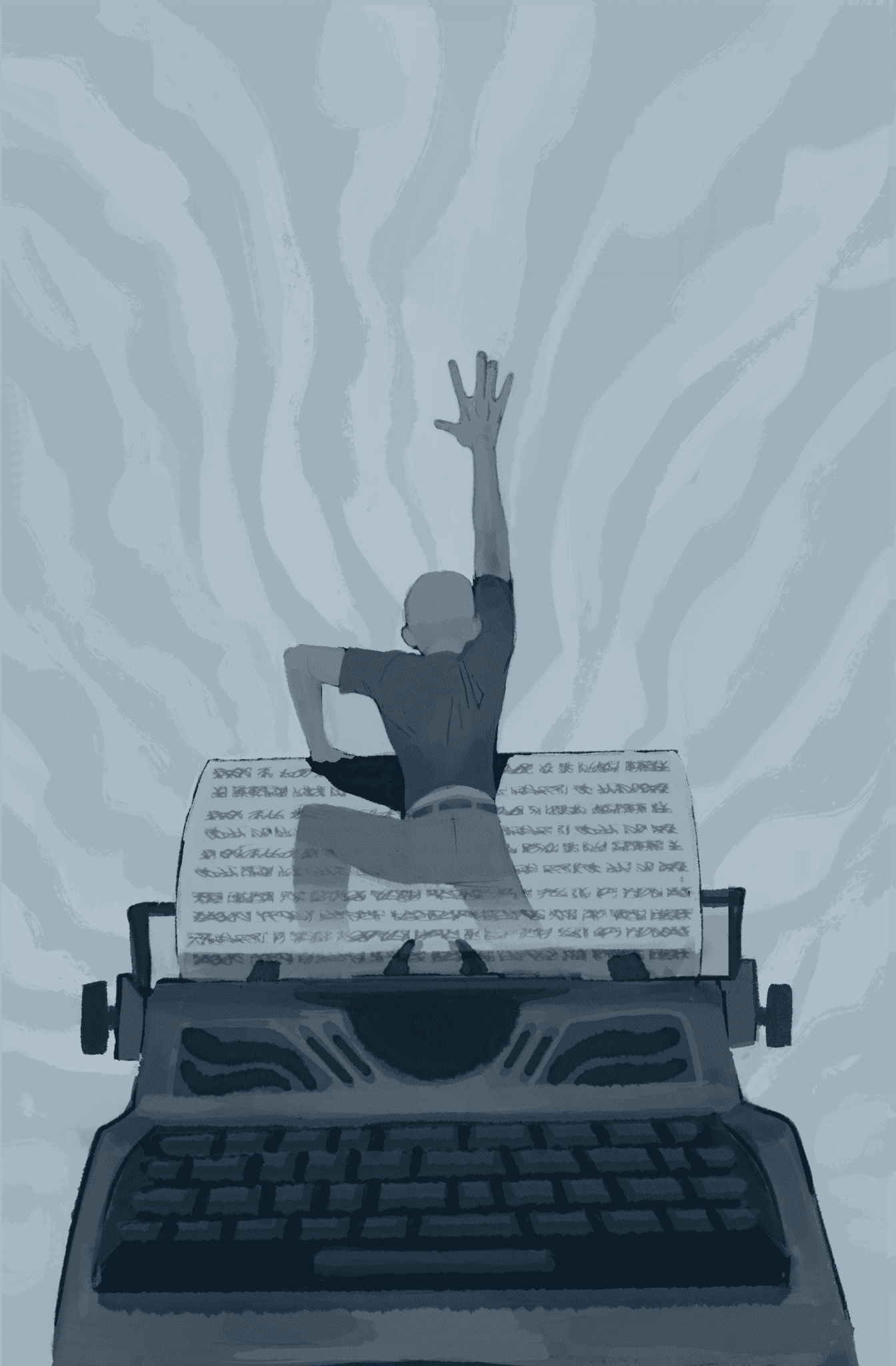A story is one of the most powerful things we can create. That goes double for the world of tabletop RPG’s, where stories are constantly shifting based on the decisions of the people playing them. But what if the stories we told decided to fight back? What if our characters decided they were tired of us making them fight dragons, investigate murders, or blow up spaceships? That’s the question at the core of Death of the Author, a new solo journaling game from designer Sam Leigh (Outliers, The World We Left Behind) currently at the tail end of its Backerkit Campaign. I got the chance to chat with Sam to see what went into designing a TTRPG taking the idea of metafiction to its limits.

Death of the Author is a hack of your previous title Anamnesis. What was the genesis of this idea and why use Anamnesis?
Death of the Author stemmed from the question, “what would a character say if they could speak with their author?” From there, the game developed a premise of a character fighting for narrative control of their story, eventually confronting their author at the very end. I also intentionally went into writing this game knowing it would be a hack of Anamnesis – I wanted to revisit Anamnesis’s mechanics and see how I could twist them to fit a different game.
Why use a tarot-based mechanic for a TTRPG?

Tarot offers an immense amount of narrative possibility. The meaning of a tarot card, or even just the art or title, can provide the perfect amount of inspiration to develop characters and create scenes. Asking a player to pull a tarot card is like putting a pile of LEGOS in front of them – you’ve provided the tool, but how the card inspires them (or what they build with the LEGO) is completely in the player’s hands.
How do you create an oppositional dynamic in a solo game?
A little secret about Death of the Author – the player is really playing two people: the Character and the Author. While the game is from the Character’s perspective, the player also decides how the Author responds to the Character’s story deviations, and what messages the Author leaves the Character along the way. While technically the Character and Author could work together and have the same goals, the premise of the game, the artistic design, the text itself, all set them up to be opposed. The player is shown from the start that these two should be played at odds with one another. Whether the player follows that path, though, is up to them.
Tabletop games are inherently rely on meta-narrative for their function. How did you play with mechanics and genre in creating Death of the Author?
Many solo TTRPGs, especially journaling ones, give specific prompts to the player depending on which cards they draw. Death of the Author plays with that mechanic, but twists it around: your Character can actually modify the prompts. The text of the game itself is not the final word of its author. Not only that, but the Author is in communication with the Character. The game never specifies whether the Author is the player themselves or a separate character – that is up for the player to decide. But you can have a situation where you, the player, the Author, provide messages to the Character, whom you’re also playing. It’s very meta, and I’ve always been a fan of meta-narration and fourth-wall-breaking stories.
In terms of genre, Death of the Author is actually genre-agnostic. I wanted the Author to be able to tell any sort of story, so one goal with the game’s design was to write prompts that could fit in any world: sci-fi, horror, fantasy, or anything else. The medium of the story is also flexible: the Character could be from a TTRPG campaign, or a radio show, or a webcomic, all of which might change the nature of the Author and how they’re telling this story.
What’s the difference between a meta story pitting Character vs author and a story pitting character is god? How do you draw a distinction In your writing?
For me, the distinction is that the Author is mortal, even if they’re the “god” of the Character’s world. The Author isn’t an all-powerful being – they’re just a person with a story. The Character might view them as a god, and the Author might have a god’s power over their own story, but in the end they’re a person with flaws and insecurities. This distinction comes through the most at the end of the game when the Character confronts the Author. In the end, the two are on equal footing: a mortal and a mortal.
How do you “anticipate” choices and outcomes when designing a solo TTRPG?

When writing a setting-agnostic game like Death of the Author, I typically think about different genres and settings and consider whether a prompt would fit into any world. There will always be edge-cases – it’s nearly impossible for a prompt to easily fit into every player’s story – but it helps to run through certain questions like “would this prompt make sense in medieval times?”
For Death of the Author, I also needed to consider which parts of the prompts the Character can rewrite entirely. There’s a balance to be met: I wanted the Character to have a massive amount of freedom in writing their own words, while still having limits on the scope. There were some prompts that, while good on their own, didn’t have great “rewrite” sections and were thus scrapped.
What media did you draw on when getting inspiration for Death of the Author?
Surprisingly, not a lot! I did, however, reference TV Tropes for prompt inspiration, as I was writing prompts that contained themes common in character backstories, and at the beginning, middle, and end of stories. So, in that way, you could say the inspiration came from everywhere!
How do you envision players to explore the idea of “agency” within the game?

Death of the Author provides a medium to tell a story of a Character gaining agency within their story after wrestling control from the Author. I imagine many players will take this route, but the mechanics of the game don’t actually dictate how much agency the Character has in the end. Perhaps the Character and Author end up with equal control over the story, or maybe the Character fails to gain autonomy in the end. All are fair ways to end the game, and depend on the decisions the player makes as both Character and Author.
Is this a hopeful game?
The premise of the game involves struggling to make a difference within the system you’re bound to. At times the Character might feel exhausted, or demoralized. But they continue to change their story, even in the smallest of ways.
What Soundtrack would you recommend for someone while they play?
This is a tough one for a genre-agnostic game, but the soundtrack for The Talos Principle is a great place to start.
You can check out Death of The Author on BackerKit and keep an eye out for it later this year at Sam’s Blinking Birch Games!
Images via Blinking Birch Games
Have strong thoughts about this piece you need to share? Or maybe there’s something else on your mind you’re wanting to talk about with fellow Fandomentals? Head on over to our Community server to join in the conversation!

